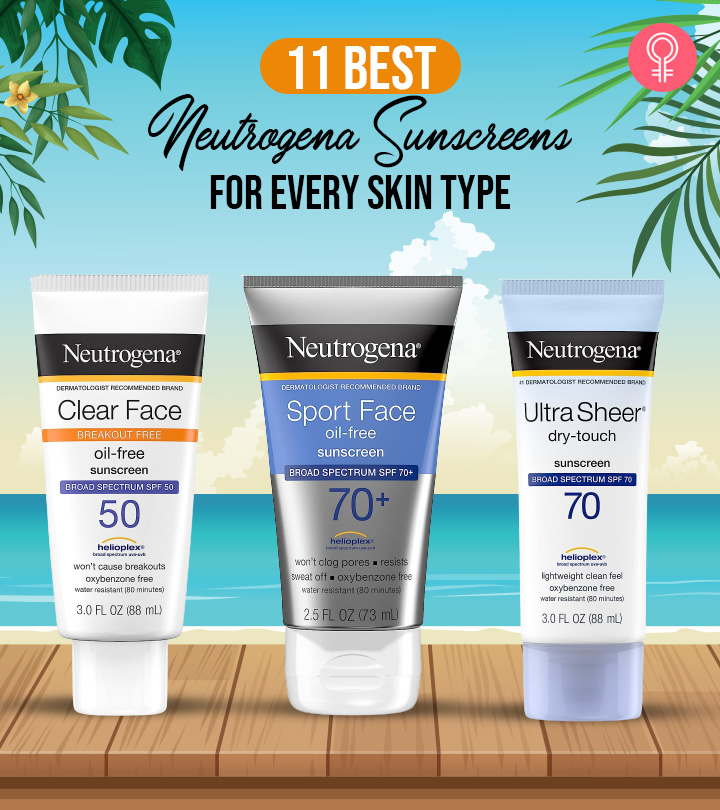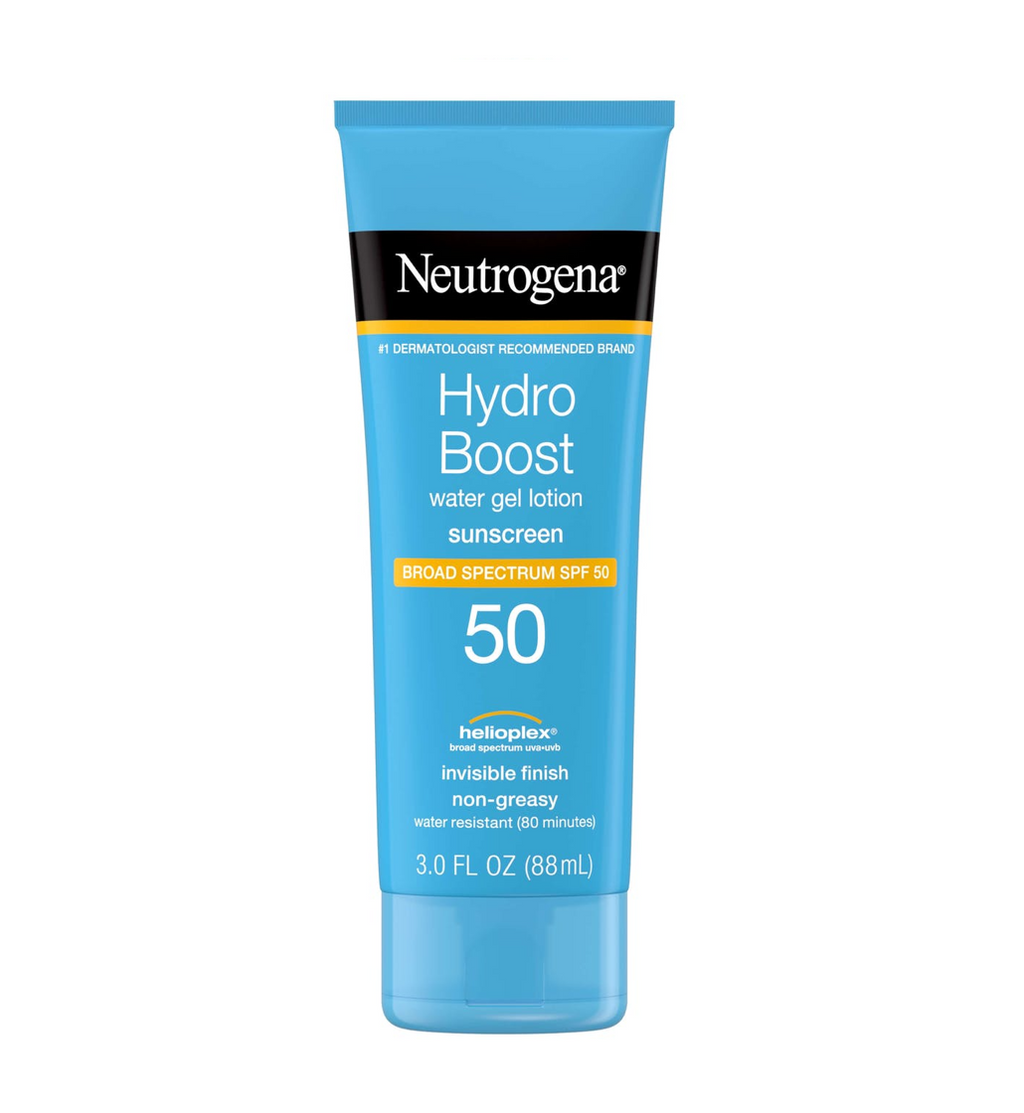When it comes to sunscreen, Neutrogena is a name that often comes up in conversations about skincare protection. Neutrogena has been a household brand for decades, offering a wide range of skincare products, including sunscreens. But is Neutrogena a good sunscreen? This article will provide an in-depth analysis to help you make an informed decision about whether this brand is right for your skin needs.
Protecting your skin from harmful UV rays is crucial for maintaining skin health and preventing long-term damage. Sunscreen plays a vital role in this process, and choosing the right one can be overwhelming with so many options available. Neutrogena has established itself as a leader in the skincare industry, but does its sunscreen live up to its reputation?
In this article, we'll explore the effectiveness, ingredients, and benefits of Neutrogena sunscreen. We'll also provide expert insights and tips to ensure you're making the best choice for your skin type and lifestyle. Whether you're a Neutrogena loyalist or considering trying the brand for the first time, this guide will give you all the information you need.
Read also:Unlock The Secrets Of The Whispering Method A Comprehensive Guide
Table of Contents
- Neutrogena Brand Overview
- Types of Sunscreens Available
- Key Ingredients in Neutrogena Sunscreen
- How Effective is Neutrogena Sunscreen?
- Suitability for Different Skin Types
- Environmental Impact of Neutrogena Products
- Alternatives to Neutrogena Sunscreen
- Benefits of Using Neutrogena Sunscreen
- Expert Reviews and Recommendations
- Conclusion: Is Neutrogena a Good Sunscreen?
Neutrogena Brand Overview
Neutrogena, founded in 1930, has become synonymous with quality skincare products. The brand is known for its commitment to innovation and scientific research, which has resulted in a wide range of skincare solutions. Neutrogena's sunscreen line is one of its most popular offerings, catering to various skin types and needs.
Neutrogena's reputation as a trusted skincare brand stems from its dedication to producing products that are both effective and gentle on the skin. The company invests heavily in research and development to ensure that its sunscreens provide maximum protection against harmful UV rays while maintaining a pleasant user experience.
The History of Neutrogena Sunscreen
Neutrogena's journey in the sunscreen market began in the 1980s when it introduced its first line of sun protection products. Over the years, the brand has expanded its offerings to include a wide variety of sunscreens, each designed to address specific skin concerns. From sensitive skin formulas to sport-resistant options, Neutrogena has something for everyone.
Types of Sunscreens Available
Neutrogena offers a diverse range of sunscreens to suit different preferences and needs. Understanding the types of sunscreens available can help you choose the best option for your skin:
- Physical Sunscreens: These sunscreens use mineral-based ingredients like zinc oxide and titanium dioxide to create a physical barrier on the skin, reflecting UV rays.
- Chemical Sunscreens: Chemical sunscreens absorb UV rays and convert them into heat, which is then released from the skin. Neutrogena's chemical sunscreens often contain active ingredients like avobenzone and oxybenzone.
- Hybrid Sunscreens: Combining both physical and chemical filters, hybrid sunscreens offer the benefits of both types, providing broad-spectrum protection.
Best-Selling Neutrogena Sunscreen Products
Some of Neutrogena's most popular sunscreen products include:
- Neutrogena Ultra Sheer Dry-Touch Sunscreen SPF 55
- Neutrogena Beach Defense Water + Sunscreen Spray SPF 70
- Neutrogena Clear Face Breakout-Free Sunscreen SPF 55
Key Ingredients in Neutrogena Sunscreen
The effectiveness of any sunscreen depends largely on its ingredients. Neutrogena sunscreens are formulated with a combination of active and inactive ingredients designed to provide comprehensive sun protection:
Read also:Grease Good Sandy Exploring The Iconic Character And Her Legacy
- Avobenzone: A chemical filter that provides broad-spectrum protection against UVA rays.
- Oxybenzone: An effective UVB filter, though some concerns have been raised about its environmental impact.
- Zinc Oxide: A mineral-based ingredient that offers physical protection against both UVA and UVB rays.
Controversy Surrounding Oxybenzone
While oxybenzone is an effective UV filter, it has come under scrutiny for its potential impact on coral reefs. Many environmental organizations advocate for the use of reef-safe sunscreens that do not contain oxybenzone. Neutrogena has responded to these concerns by introducing reef-friendly options in its product lineup.
How Effective is Neutrogena Sunscreen?
Neutrogena sunscreen is widely regarded as effective in providing sun protection. The brand's commitment to scientific research ensures that its products meet the highest standards of efficacy. However, the effectiveness of a sunscreen can vary based on factors such as application method, skin type, and environmental conditions.
Studies have shown that Neutrogena sunscreens provide reliable protection against both UVA and UVB rays, reducing the risk of sunburn and long-term skin damage. To maximize effectiveness, it's essential to apply sunscreen generously and reapply as directed.
Clinical Studies and Testimonials
Clinical studies conducted by Neutrogena and independent research institutions have demonstrated the efficacy of its sunscreens. Many dermatologists recommend Neutrogena products for their ability to protect against harmful UV radiation. Customer testimonials also highlight the brand's reliability and ease of use.
Suitability for Different Skin Types
One of the strengths of Neutrogena sunscreen is its ability to cater to a wide range of skin types. Whether you have sensitive, oily, or acne-prone skin, Neutrogena offers formulations designed to meet your specific needs:
- Sensitive Skin: Neutrogena Sensitive Skin Sunscreen SPF 60+ is formulated with hypoallergenic ingredients to minimize irritation.
- Oily Skin: Neutrogena Ultra Sheer Dry-Touch Sunscreen SPF 55 provides lightweight, non-greasy protection.
- Acne-Prone Skin: Neutrogena Clear Face Breakout-Free Sunscreen SPF 55 is specially designed to prevent breakouts while protecting the skin.
Tips for Sensitive Skin Users
If you have sensitive skin, it's important to choose a sunscreen that is free from fragrances and harsh chemicals. Neutrogena's sensitive skin formulations are dermatologist-tested and gentle enough for even the most delicate skin types.
Environmental Impact of Neutrogena Products
In recent years, there has been growing concern about the environmental impact of sunscreen products. Neutrogena has taken steps to address these concerns by introducing reef-friendly options that do not contain oxybenzone or octinoxate, two ingredients linked to coral bleaching.
Neutrogena's commitment to sustainability extends beyond its product formulations. The brand is actively working to reduce its carbon footprint and promote environmentally responsible practices throughout its operations.
Reef-Safe Sunscreen Options
Neutrogena now offers several reef-safe sunscreen products, including:
- Neutrogena Sheer Zinc Dry-Touch Sunscreen SPF 50
- Neutrogena CoolDry Sport Sunscreen Spray SPF 70
Alternatives to Neutrogena Sunscreen
While Neutrogena is a popular choice for sunscreen, there are several other brands that offer high-quality sun protection products. Some alternatives to consider include:
- EltaMD: Known for its mineral-based sunscreens, EltaMD offers a range of products suitable for sensitive skin.
- La Roche-Posay: This French brand provides a variety of sunscreens formulated with thermal spring water for added soothing benefits.
- Supergoop!: A popular choice among skincare enthusiasts, Supergoop! offers innovative sunscreens that combine protection with skincare benefits.
Comparison of Neutrogena and Other Brands
When comparing Neutrogena to other sunscreen brands, it's important to consider factors such as ingredient quality, price, and user experience. While Neutrogena offers excellent value for money, some users may prefer the formulations of other brands based on their specific needs.
Benefits of Using Neutrogena Sunscreen
Using Neutrogena sunscreen offers several benefits, including:
- Comprehensive Protection: Neutrogena sunscreens provide broad-spectrum protection against both UVA and UVB rays.
- Versatility: With a wide range of products, Neutrogena caters to various skin types and preferences.
- Trusted Brand: Neutrogena's reputation for quality and innovation makes it a reliable choice for sun protection.
Value for Money
Neutrogena sunscreens are competitively priced, making them an attractive option for budget-conscious consumers. While premium brands may offer additional benefits, Neutrogena provides excellent value for its price point.
Expert Reviews and Recommendations
Many dermatologists and skincare experts recommend Neutrogena sunscreen for its effectiveness and affordability. Reviews from trusted sources such as the American Academy of Dermatology and Consumer Reports consistently highlight the brand's strengths in sun protection.
When choosing a sunscreen, it's important to consider expert recommendations and user reviews to ensure you're making the best choice for your skin.
Dermatologist Recommendations
Dermatologists often recommend Neutrogena products for their ability to provide reliable sun protection without causing irritation. The brand's commitment to research and development ensures that its sunscreens meet the highest standards of safety and efficacy.
Conclusion: Is Neutrogena a Good Sunscreen?
In conclusion, Neutrogena is a good sunscreen choice for those seeking effective, affordable sun protection. The brand's wide range of products caters to various skin types and needs, making it a versatile option for many consumers. While some concerns about environmental impact persist, Neutrogena's efforts to introduce reef-safe formulations demonstrate its commitment to sustainability.
We encourage you to explore Neutrogena's sunscreen offerings and find the product that best suits your skin type and lifestyle. Don't forget to leave a comment or share this article with others who may find it helpful. For more skincare tips and product recommendations, be sure to explore our other articles on the site.

